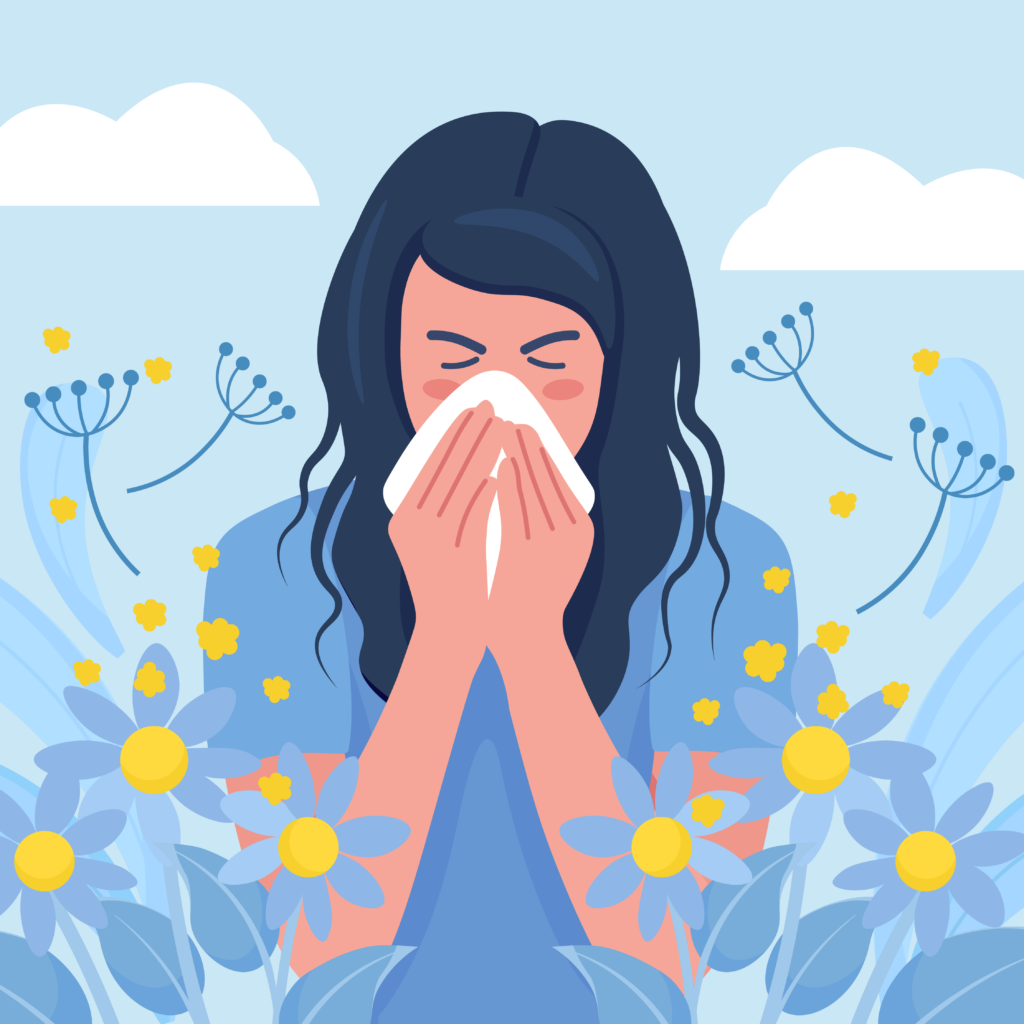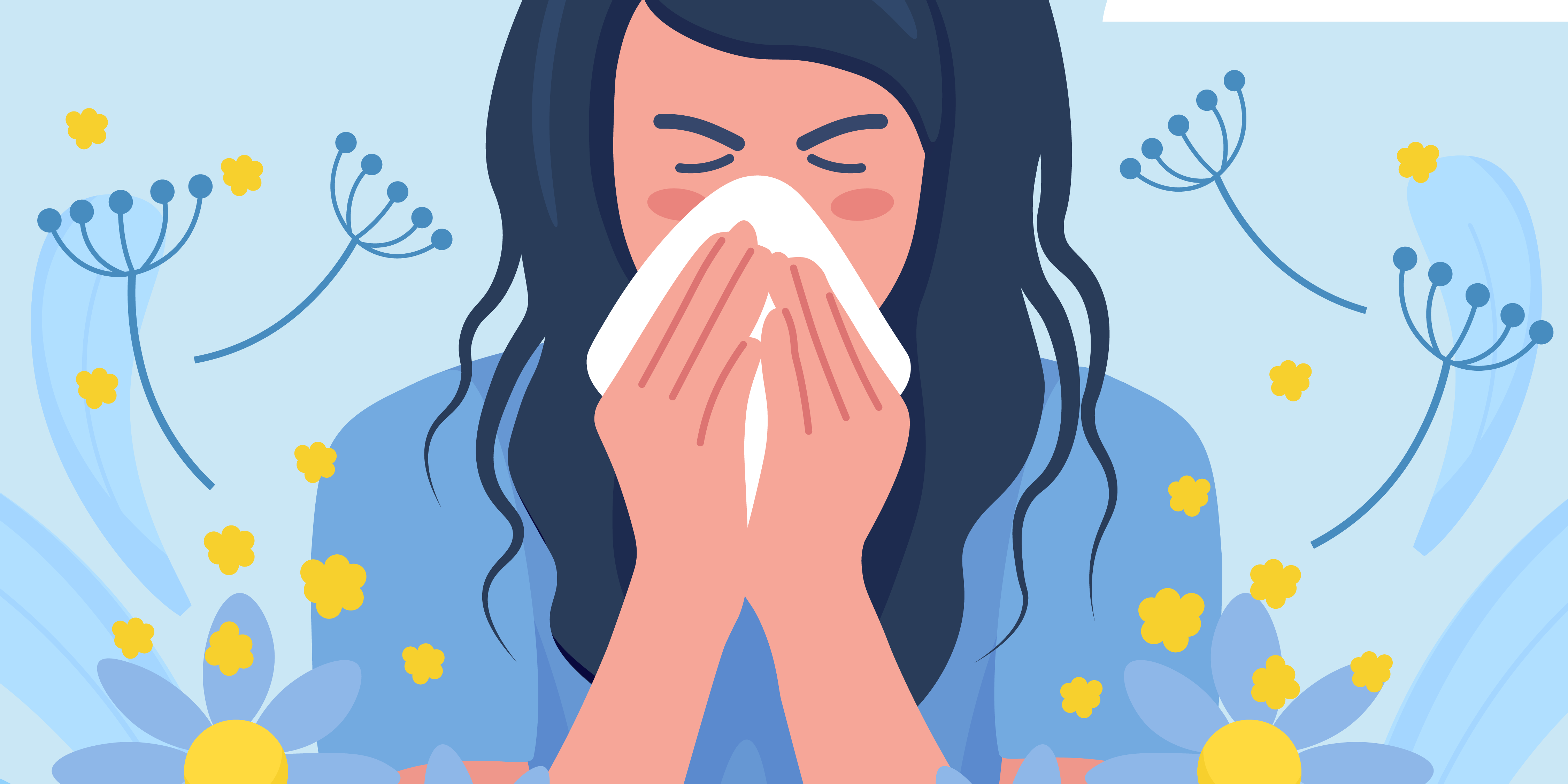
Springtime can bloom new flowers and have lots of sunshine, but for many people, the Spring season is also known for its seasonal allergies. Sneezing, congestion, and itchy eyes are common allergy symptoms, but did you know that allergies can also impact your oral health? Here’s how:
- Dry Mouth (Xerostomia)
Seasonal allergies often cause nasal congestion, leading sufferers to breathe through their mouths. This can reduce saliva production, resulting in dry mouth. Saliva is essential for washing away bacteria and food particles, so a lack of it can increase the risk of cavities, bad breath, and gum disease. - Bad Breath
Postnasal drip, another common symptom of allergies, can contribute to bad breath. When mucus builds up in the throat and back of the mouth, it creates an environment where bacteria thrive, leading to unpleasant odors. - Tooth and Jaw Pain
Sinus pressure caused by allergies can sometimes be mistaken for a toothache. The maxillary sinuses are located near the upper molars, and when they become inflamed, they can create a dull, aching pain in the teeth and jaw. If the pain subsides after your allergies improve, it’s likely sinus-related. - Gum Inflammation
Seasonal allergies can trigger an inflammatory response in the body, which may cause swollen, sensitive gums. In some cases, excessive mouth breathing can also irritate the gums, leading to discomfort.
How to Protect Your Oral Health During Allergy Season:
Stay hydrated to combat dry mouth.
Use a saline rinse to clear nasal passages.
Maintain good oral hygiene by brushing and flossing regularly.
Chew sugar-free gum to stimulate saliva production.
Consult your dentist if you experience prolonged tooth pain.
By being proactive, you can keep your mouth healthy while managing seasonal allergies. If symptoms persist, Call or Text us today to schedule an appointment!


